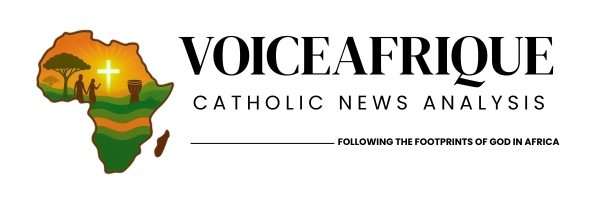At the III Pan-African Catholic Jubilee Congress in Abidjan, a bold and inspiring message emerged; one that challenges the long-standing portrayal of Africa as a continent of despair. The “Hope for Africa” declaration is more than a statement; it’s a manifesto for transformation. It envisions the African Church not as a follower, but as a global leader—demanding transparency, accountability, and a renewed approach to evangelisation in the modern age.
Rejecting Dependency, Embracing Sovereignty
The Congress marked a decisive shift away from the African Church’s historical reliance on foreign aid. Referred to as the “Church of the Sheaves”, the declaration calls for both financial and spiritual independence. It urges the Church to become a self-sustaining missionary force – generating and managing its own resources, establishing African-led missionary funds, and charting its own course. The message is unequivocal: the African Church will no longer play a subordinate role. This is sovereignty in action.
Evangelising in the Digital Age
Recognising that faith must meet people where they are, the Congress embraced the digital realm as the new frontier for evangelisation. The declaration commits to empowering “African digital faith influencers”, young evangelists who spread the Gospel through platforms like TikTok, YouTube, and Twitter. This strategic move reflects the Church’s understanding that reaching the next generation requires engaging with the digital world. These influencers will be mentored and supported to counter misinformation and connect authentically with youth. The Gospel is now being preached in pixels and parables.
A Call for Transformational Leadership
The declaration also delivers a pointed critique of leadership across Africa – both secular and religious. It calls for “transformational leadership modelled on Christ”, demanding integrity, transparency, and moral courage from bishops, politicians, and community leaders. This is a direct challenge to the continent’s entrenched culture of corruption and broken promises. For Africa to rise, it must be led by those who serve rather than exploit. The Church is drawing a line: it must either cultivate such leaders or risk being complicit in the problem. The era of half-measures is over.
Hope as Holy Defiance
At its heart, the Abidjan declaration redefines hope—not as passive optimism, but as active resistance. Rooted in Jesus Christ, this hope confronts suffering with bold action. It commits the Church to fighting poverty, poor governance, and climate injustice with the same fervour it uses to proclaim the Gospel. This is not escapist piety—it is a courageous faith that seeks to redeem the world, not retreat from it. Here, hope wears boots and gets to work.
The Hour of African Catholicism
The message from Abidjan is clear: a new chapter has begun for the African Church. It is a vision of a self-reliant, digitally fluent, and morally courageous institution ready to lead. The world should take notice; the hour of African Catholicism has arrived! Africa is not merely the future of the Church; it is its present.

